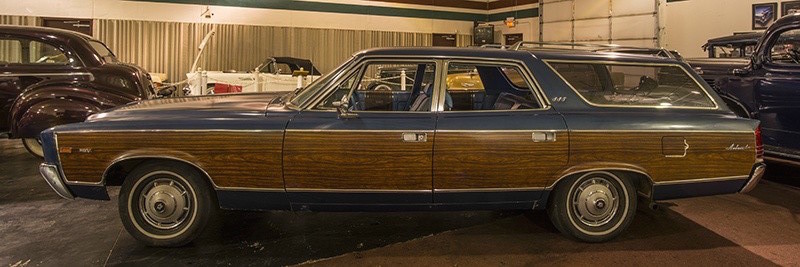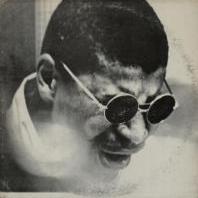-
Posts
5,203 -
Joined
-
Last visited
Content Type
Profiles
Forums
Events
Blogs
Everything posted by Late
-
Nor the one-record effort of Ferris Benda.
-
-
I have a soft spot for this one. My first Byrd purchase (on vinyl, back in the day). But, for me, the Half Note recordings take the cake.
-
I did the same thing. I tried listening that way, and then went back to the (random?) Weinstock order. The only "session order" date that I continue to listen to is the February 15, 1957 (the "Arthur Phipps" session) date that was spread over multiple records. Great playing there.
-
Sal Nistico's Neo will now be on compact disc? Yes! I sometimes confuse Beehive with Honeydew records. I thought for a moment we were going to get a ton of Elvin Jones solos ...
-
Spinning Dr. Jackle on Steeplechase right now. I always forget that these recordings are from 1966. Somehow I got it in my head that they were from 1968. (Still doesn't qualify them as 1970's Steeplechase recordings of course.) Listening now, I like Lamont Johnson quite a bit more live than in the studio, though he does seem to have a tendency to play the same fourthy chords over and over. That show — that makes up Dr. Jackle and Tune Up — would have been amazing to be at. The heat is turned UP. Billy Higgins in his most Tony Williams-sounding guise. (Not a knock on Billy. He sounds great.) Jackie fans will want to have these two discs. Not stellar sound, but the playing more than makes up for it. Forgot about Ode to Super, which I actually own. As I recall, it promises more than it delivers, and I always want Bartz to break out of whatever seems to be holding him back. I need to revisit this one though.
-
New York Calling is a very good record. Unfortunately, it's one of the worst-sounding compact discs I've ever heard. Thin, glaring, over-digital ... just painful, which is a shame. (I wonder if the LP sounds as bad.) The Left Bank recordings are really good — I actually spin them a fair amount. I'm not the biggest fan of the Johnson-Holt tandem, but Higgins is great, and Jackie, when inspiration strikes, pushes the inside/outside envelope to its limit. I've heard the Montmartre and Jackie/Dex Steeplechases, but haven't listened enough to make any statements with confidence. They seem like a return-to-bop-roots effort in general. According to the Jackie McLean on Mars documentary, Jackie wasn't practicing regularly around this time, which might account for the "muscle memory" quality of his playing on the later Steeplechase records. The great sound is still there though. How many records on Steeplechase does Jackie have?
-
Kind of nit-picky, but doesn't Jackie only have one date on Jubilee (i.e. Fat Jazz)? I thought his debut was on Ad Lib, and then later reissued on Jubilee. (So, I guess there are two Jubilee dates.) At any rate, I agree with your statement. I have his debut session on a 1983 Japanese compact disc (the price printed on the tray card at 3500¥!) with the owl cover ... on Roulette. The sound is actually quite good. I have Fat Jazz on a Japanese SBCJ mini-LP edition. The sound is compressed like crazy, but with the volume turned down, it doesn't sound awful. Both sessions would benefit from a careful remaster.
-
Rather than start a new thread, I thought I'd bump this one up — it's old, but worth reading. I wanted to ask a few questions though: Did the 50th anniversary edition of Spiritual Unity actually come out on compact disc? I only have the (legal) download, but couldn't find evidence of a hardcopy. The bonus track, which was new to me, is wonderful. I haven't yet listened to the session outside of the laptop, but it seems to have improved sound. One thing I did notice (and don't notice on the ZYX compact disc edition) is the glaring edit (just after :01) in "Spirits." A bad splice if there ever was one. Anyone else hear this?
-
Nice description. There is a certain amount of swagger in the Prestige dates, whereas in the Blue Note sessions I hear a more concentrated effort to stretch boundaries, which results in a greater level of seriousness. Of Jackie's Blue Notes, I've always thought Jackie's Bag was under-examined. Some of the very best Sonny Clark on record there — some of the hippest comp figures I've heard. I've also wondered if the cover art were different — say, with an actual photo of Jackie — if the record itself would receive more attention. I guess Francis Wolff was not a fan of that cover.
-
The OJCs, I think, are well transferred to disc. If I were in your position, however, I'd be very tempted to pick up the fairly recent Japanese SHM-CD editions. Of those I've heard (only one with McLean though — Ray Draper's Prestige date), all sound excellent. A lot of "air" around the horns.
-
Agreed — and that's the impediment (I think) listeners often have in particular when assessing the merit of McLean's Prestige work. It almost can't not be viewed through the prism of what came only a few years later. There's a fair amount of fire in those Prestige solos, even in warmed-over standards (e.g. "What's New?"). There are also times when, just when you think he's churning out a predictable bop line, he stretches it further, four or five more bars, and then avoids all the ending-phrase notes that bop commonly programs into your ear. Bird did this too, of course, but when Jackie does it, you can really hear him think, which leads me to believe that he often wasn't on auto-pilot. Food for thought at least.
-
The missing track ("Used To Be") from Fusion is on YouTube for those who'd like to hear it.
-
I'd take that over the Ornette record. McLean and Al Shorter playing Shorter's tunes — some truly new gospel.
-
Between January 1956 and May 1957, Jackie McLean was in the studio more than 25 times — as a leader, as a Messenger, with Mingus, Gene Ammons, Mal Waldron ... and probably someone else I'm missing. I've always liked Jackie's Prestige recordings just as much as his Blue Note recordings. Yes, the Blue Note records display a McLean breaking through Parkerisms and out of the hold of addiction, but the Prestige recordings, while not exactly groundbreaking (except for maybe the tuba quintet), are something special. Even when Jackie appears to be dialing it in, there's still that insatiable cry and unerring fluency. Strictly for Prestige as a leader, there is: 1. Lights Out 2. 4, 5 & 6 3. Jackie's Pal 4. McLean's Scene 5. Jackie McLean & Co. 6. Makin' The Changes 7. A Long Drink of The Blues 8. Strange Blues 9. Alto Madness (co-led) My two faves are Makin' The Changes and A Long Drink of The Blues. Jackie's short feature on tenor on the latter makes me wish he'd recorded more on the larger horn. I also really like the "blues" tunes from Strange Blues. Jackie's records for Prestige make me want to have a marathon listening session, one slab after the other. His Blue Note records I like to take one by one with time in between. What's your personal favorite?
-
Here's a previous thread on Pharaoh: Some useful comments, and even a rating system!
-
There's Ayler footage from his 1966 European tour, included the Kasper Collin documentary: http://www.tudou.com/programs/view/-_ap23w1Gi8 I wish it would make it to DVD some day ...
-
Anyone been listening to the new, recently released, crop of Blue Note SHM-CDs? I have to wait until mid-November for my CD Japan order to ship.
-
Just listened to this album straight through. Miles' playing is near perfect, and he seems to know it — listen to how many long notes he holds, almost for the sheer pleasure of hearing them come out of his horn. Many years ago (1995, I think), I attended a Wynton Marsalis concert that had a Q & A before the show. One of the questions fielded to Wynton (Stanley Crouch was also there; he talked about four times as much as Wynton) was what did he like about Miles Davis. Wynton said, "I love the way Miles plays long notes." Whenever I listen to Someday My Prince Will Come, I always recall that answer. Miles had great control of his breathing, at least during this period. Is it true (or just urban myth) that Coltrane's solo on "Teo" was dubbed in? The solo is spectacular of course, but when I listen to it closely, the rhythm section doesn't seem to be responding in any particular way to what Coltrane is playing. Kelly's comping is unobtrusive and light, but it doesn't seem to react to the saxophone. One thing that struck me as kind of funny when I listened to this track ("Teo") this time around — when Coltrane plays his signature false-fingered five-note clusters, Miles plays his own version (but doesn't quite nail it) in triplets for his own (later) solo, almost as if to say: "Let me try that. How does he do that?" At least, that's how it struck me this time. Coltrane also (attractively) bends some notes in his "Teo" solo, something I don't normally hear him do that conspicuously. Last note/question — isn't this the first album where Miles got his wish to have no liner notes?
-
Last year, for economic reasons, I sold off nearly all my Chronological Classics titles. One title I knew I wouldn't part with is: Hardee plays what is probably my favorite version of "What Is This Thing Called Love?" — and, warhorse that it is, makes it feel, while not necessarily new ... mysterious. Shadows and fog. Fans? I often find Hardee's playing more engaging than his direct contemporary, Ike Quebec. Hardee was no trailblazer, granted, but that sound!
-
Thank goodness for copy editors. The first mock-up of the cover, with all the breaks across individual words, read: un-prom-ising com-plex-ion
-
Also wanted to say that I first heard of Liz Gorrill as a result of watching the Tristano "Manhattan Studio" documentary. Enthusiastically recommended. Gorrill takes Tristano even further out, to the point that the music no longer clearly, or directly, references Tristano. A hidden gem of a piano player.
-
Here's Sam from 1964: I always thought Dimensions & Extensions was left "in the can" due to economic, rather than artistic reasons — at least that's what Michael Cuscuna has implied over the years. It was considered releasable enough, at some point, to have Reid Miles create a cover. In the last ten years, I've gone through the McMaster, Mosaic, and RVG editions of this album. The new Japanese SHM-CD (prefix UCCQ) trumps them all. Excellent sound on that disc.
-
Tristano is the necessary thread that puts together musical awareness. The "Manhattan Studio" doc is essential viewing.
_forumlogo.png.a607ef20a6e0c299ab2aa6443aa1f32e.png)


